11 Tips For Small Businesses

Making sure your business has the ability to accept credit cards as payment is about a lot more than simple customer service. Today’s consumers don’t just prefer to pay for goods and services with their credit cards. They expect to be able to do so pretty much anywhere they go whether that’s the corner bakery, their favorite website, or their local gas station.
Being able to compete in today’s marketplace is especially important for small businesses. A business of any size that doesn’t or can’t accept credit cards risks losing a large portion of its business to the competition. However, problems like chargebacks or fraud are naturally going to be bigger concerns as well. Here we’ll go over some need-to-know tips for small businesses that accept credit cards (or hope to be able to do so soon).
Take the time to shop around for the right payment processor.
Before you’ll be able to start accepting credit card payments you’ll need to open a merchant account. The process of applying for and getting approved for a new merchant account can be lengthy and complicated. However, you don’t want to make the mistake of thinking one payment processor is as good as any of the others.
Choosing a payment processor is actually a lot like choosing a credit card company. Each option is going to come attached to its own rates, fees, advantages, and disadvantages. Some will be better fits for your business than others, so take the time to shop around, compare terms, and find something that’s really going to work for you.
Prioritize options that offer more freedom.
When you run a small business, especially if it’s still a new business finding its footing in the marketplace, it’s important to make sure you have the freedom to make adjustments as needed as far as how you do things. While being able to accept credit cards will work wonders when it comes to attracting and retaining clients, you don’t want to wind up locked into a long-term contract right off the bat.
Some merchant account providers will try to get a business owner to agree to a lengthy agreement that comes attached to hefty cancellation fees. Don’t be afraid to say “no” or ask whether exceptions can be made in regards to requirements you don’t like. Oftentimes, the terms of a given partnership are more flexible than they seem to be at first glance and it never hurts to ask.
Once approved, follow the rules to the letter.
When it comes to money and credit in particular, it really pays to know the rules backward and forward, as well as to follow them precisely. Although the protocol may vary from one credit card processor to another, it’s always going to be there. Following it is an important part of keeping your merchant account in good standing and protecting your business from fraud.
For instance, you’ll want to know whether or not you need special permission to process purchases where the physical card isn’t present (i.e. online purchases or transactions completed over the phone). Many payment processors require the merchant to obtain additional information for security reasons such as IP addresses, digital signatures, or information from social media profiles.
Never close a transaction without valid authorization.
As touched on above, modern consumers love nothing more than plenty of options when it comes to how they can pay for their purchases. For that reason, it’s definitely in your best interests to offer a variety of options including debit, prepaid cards, and gift cards in additional to traditional credit cards.
However, there’s one important factor you never want to become lax about. Never complete a sale and call a transaction complete without a valid authorization. Otherwise there’s a strong likelihood of not getting paid or running into trouble with fraud.
Add credit card related signage to your website or shop décor.
These days, most of your customers will probably take it for granted that you accept credit cards unless they’ve been given a reason to think otherwise. However, dedicated signage that makes it clear without their having to ask outright certainly never hurts. In fact, it can be excellent for business.
Place signs stating not only that you accept credit cards, but that feature the logos of the specific cards you do accept both at the front of your store and at the checkout counter. You’ll be especially more likely to boost revenue through impulse buys.
Make sure your payment descriptors are clear enough.
Expensive chargebacks can happen for any number of reasons, up to and including actual fraud. However, quite a few happen due to simple misunderstandings that could easily be avoided with a little care and forethought. For instance, make sure the payment descriptor attached to your transactions is crystal clear. It should include your merchant name, as well as any other important details related to your business.
Keep in mind that the average consumer may make numerous credit card transactions over the course of a single month and it’s not unheard of for a few to be forgotten about. Payment descriptors that aren’t easily recognized could wind up reported as fraud when they’re actually completely legitimate.
Make sure all customers are clear on your refund policy.
When you run a small business, there’s really no such thing as too much clarity, especially when it comes to payments and refunds. Sooner or later, you’ll have a customer want to return something they’ve purchased or request an adjustment due to damage, sale prices that took effect immediately after purchase, et cetera.
Make sure your business not only has a clear policy in place as far as returns or adjustments, that your customers are all aware of it. Display your policy prominently at points of sale. Print it clearly on all receipts as well so the customer can’t miss it or confuse your policy with anyone else’s.
Make sure all customer service issues are dealt with in a timely manner.
Like returns, customer service issues are sometimes just par for the course when you run a business. This is just as much the case with credit card-related transactions as anything else. In fact, really good customer service can actually help you make short work of a potential chargeback before it has a chance to cost your business money.
Find out whether or not your payment processor offers notifications in regards to pending chargebacks and activate that option as soon as possible. This way you find out whether a customer is disputing a charge nearly right away. Not only does this help you prepare, but it gives you the opportunity to contact that customer and see what you can do to smooth things over.
Learn how to spot potential fraud early on.
Of course, identity theft is sadly a thing in today’s society. However, while there’s not a lot you can do to stop people from stealing credit card information that doesn’t belong to them, you can protect your business from fraud-related chargebacks by learning to spot potential fraud early.
Double and triple check details related to credit card related transactions and teach your employees how to do the same. Do the billing and shipping addresses match on website purchases or phone purchases? What about the security code on the card? If anything seems amiss, play it safe and call the card holder to make sure everything’s on the up and up. They’ll most likely appreciate the fact that your business goes the extra mile to make sure their sensitive information stays protected.
Keep meticulous records of absolutely everything.
Every smart business owner already keeps spotlessly detailed books in regards to their business’s financial details. However, detailed records are even more important when it comes to credit card transactions. Good records make things infinitely easier if you ever need to fight a chargeback at any point in the future.
No, records won’t be of much help if someone’s stolen another person’s credit card details. However, they’ll quickly nip things in the bud in the case of customers that have forgotten about a legitimate purchase or who may be fraudulently trying to take advantage of the chargeback system.
Make it easy for people to reach out to you.
As touched on above, great customer service can really move mountains when it comes to saving your business money. That said, always make it a top priority as far as how your company deal with customers. Don’t just make it a point to be solicitous and accommodating with customers when you interact with them in person. Make it easy for them to get in touch with you or a rep from your business if they have questions or concerns about a purchase as well.
You’ll have the opportunity to address concerns before they become full-blown problems or misunderstandings. Also, if a customer requires a refund, it’s much wiser and less detrimental to simply handle it yourself than have to deal with a chargeback. In other words, great customer service is never a mistake or a waste of time. In fact, it’s one of the very best ways to not only make your business money, but save money as well.
Return to Blog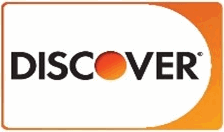
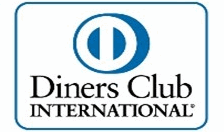


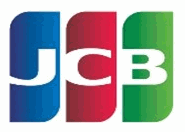
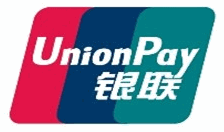
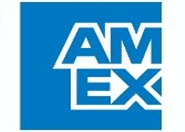


* Created by
